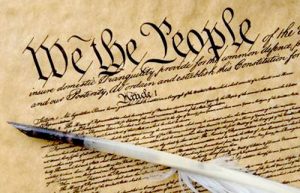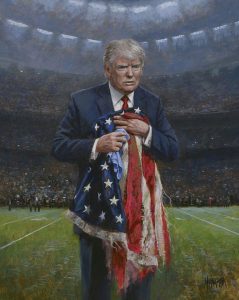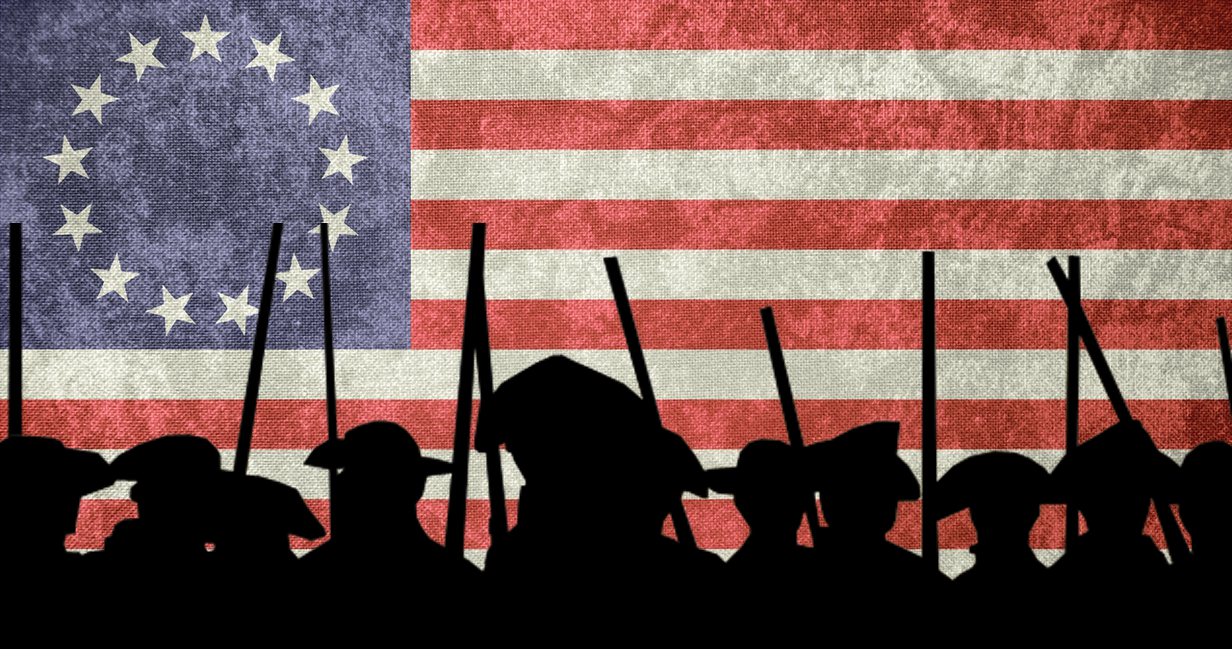| November 8th, 2016 – America’s Third Machiavellian Moment
by Rodney Dodsworth May 20, 2019 |
The typical characterization of Niccolo’ Machiavelli (1469 – 1527) today is that of a cold advocate of raw force from which his devious students, petty princes in small kingdoms, kept themselves in power through treachery and fear. These are not the positive lessons that carried over from the Renaissance and down through The Enlightenment to the American Revolution. If anything, The Prince illustrated the consequences of lost liberty, the final corruption of a people too ignorant or frightened to preserve themselves. Alternatively, in Discourses on Livy, Machiavelli studied the long-lived Roman Republic and how the people kept their freedom for so long in the face of always-encroaching corruption. He found that the form and composition of governing institutions and religion share a place in keeping liberty.
Since corruption of government by its members soon drifts downward to the people, Machiavelli surveyed society’s options. When should it peacefully reform its institutions? When must it rise up in revolution? Perhaps it can rely on a single man to dispatch the corruption and leave behind stronger foundations capable of better-resisting corruption.
Going further, the historian J.G.A. Pocock suggests that Machiavelli emphasized the moment when a republic confronts the problem of its instability and imminent dive into despotism.1 He calls this the “Machiavellian Moment.” At a Machiavellian Moment the community is at a crossroads; what should it do?
As opposed to Rome, our Framers had the lessons of history to advise them in their design of a unique American republic. Sidney, Trenchard, Gordon and Locke, together with the Greek, Roman, and Renaissance masters of the tradition as far as Montesquieu, formed the authoritative literature of their culture; and its values and concepts were those we know. Pocock described them as a “civic and patriot ideal founded in property, perfected in citizenship but perpetually threatened by corruption, with government figuring paradoxically as the principal source of corruption and operating through patronage, faction, standing armies (as opposed to the ideal of the militia), established churches (as opposed to a multitude of Protestant sects) and the promotion of monied interests.”
Hardly a year after Edmund Burke warned fellow MPs that colonials “augur misgovernment at a distance, and snuff the approach of tyranny in every tainted breeze,” America confronted its first Machiavellian moment on July 4th 1776. The corruption flowing from Parliament and George III, the denial of the rights of Englishmen, were just too much to endure.

The second Machiavellian Moment occurred fast on the heels of the first. In May 1787, state delegates convened in Philadelphia to deal with overly democratic state governments and the ineffective Articles of Confederation. At the root of their fears “was the conviction that the new American republics were not proof against . . . fate, the cycle of corruption, discontent, decay, and dissolution” that Enlightenment thinkers regarded as inevitable occurrences.2
At critical moments in history, certain men have led their nations out of corruption and into renewed liberty. Like Brutus, who established the Roman Republic, George Washington served as general of the Continental Army and as the indispensable leader who shepherded completion of the draft Constitution. He left behind free institutions that outlived him and served their intended purposes until 1913.

America was, without doubt, at a Machiavellian Moment on November 8th 2016. Enough people recognized the absence of all Constitutional restraint over the previous eight years and put their trust in a non-politician, a real-estate mogul and an unabashed patriot. Donald Trump recognized the US was at a dangerous corrupt phase and that the Deep State Swamp, rather than republican institutions, was on the verge of despotic rule. His campaign rhetoric and Presidential policies stand in opposition to modern Presidents, whose first duty was to the party that put them in power, and who balked at the idea of confronting the Deep State.
So, the United States faced at least three Machiavellian Moments; the first was violent, and the remaining two were peaceful. But, what of the future? When Trump’s presidency concludes in 2025, what is to restrain the return of corruption? Machiavelli reasoned that the prince must transform his wisdom (focus of The Prince) into public institutions (focus of Discourses) before any independent, self-governing republican state can properly function.
Before affecting institutional reforms, President Trump must, like Brutus and George Washington, defeat the Deep State foes of republican free government. He must brutally, through our system of justice, destroy their leadership. When completed, when the high criminals of the previous administration are indicted, Trump can put aside The Prince and refer to Discourses.
Then and only then, when the nation realizes how dangerously close it came to a coup d’état can he appeal to a more vigilant people, a people made aware of the fragility of their freedoms. Without an Article V COS, without assistance from the people, President Trump’s accomplishments will soon fade. It is up to us, We the People, to step back and evaluate the near-death experience of our republic and make the necessary reforms. Article V!
- The Machiavellian Moment(1975), Pocock’s widely acclaimed magnum opus, showed how Florentines, Englishmen, and Americans responded to and analyzed the destruction of their states and political orders in a succession of crises sweeping through the early modern world.
2. Hoffer, P. C. (1998). Law and People in Colonial America. Baltimore: The Johns Hopkins University Press. 150.

